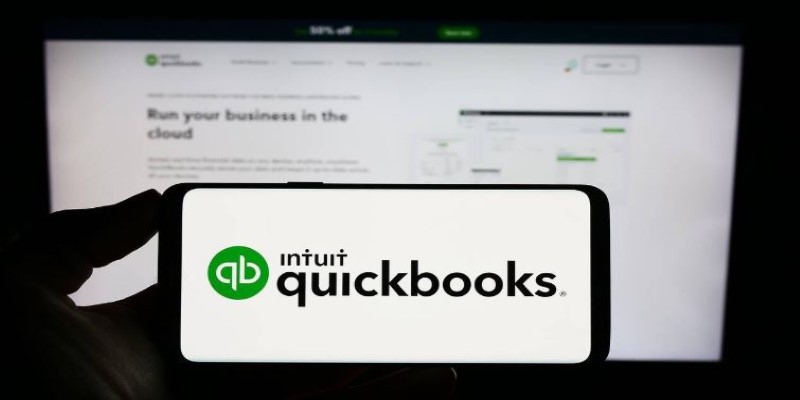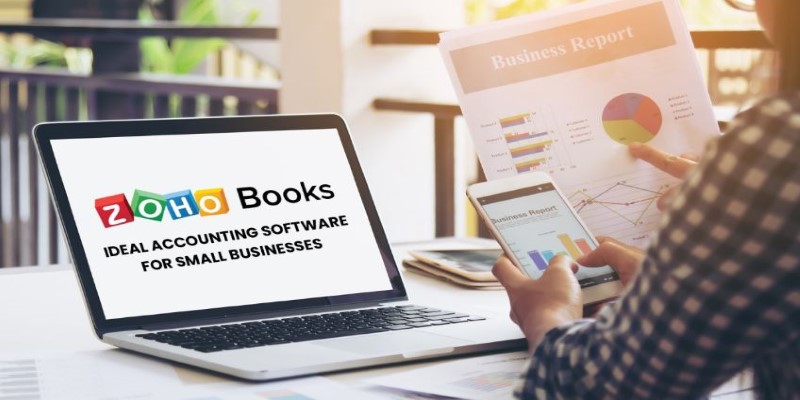Running your own business offers independence, but managing finances can be overwhelming. Unlike employees who have payroll systems, self-employed individuals must handle income tracking, invoicing, taxes, and expenses. Doing this manually can lead to mistakes and stress. The right accounting software simplifies everything, ensuring accurate records and preventing tax surprises.
Modern accounting tools go beyond basic number tracking—they automate tax deductions, monitor expenses, and provide financial insights. With the right software, self-employed professionals can save time, avoid errors, and focus more on their work rather than getting bogged down by bookkeeping. Accounting software is essential for smooth, organized financial management.
What to Look for in Self-Employed Accounting Software?
Choosing the best self-employed accounting software requires understanding what features matter most. Unlike large businesses, freelancers and independent professionals need something simple yet effective. A key feature is expense tracking, which organizes purchases automatically and allows individuals to view where their money is spent. This is particularly helpful once tax time rolls around since deductions are easier to determine.
Invoicing and payment tracking are also vital. Being able to send professional invoices and follow payments means no income is being lost or forgotten. Some of the software even links with bank accounts, fetching transaction information automatically for real-time financial information.
Yet another critical task is tax management. Because self-employed professionals must manage their taxes, software that can estimate the tax burden and remind can avoid expensive errors. Some websites even enable users to pay taxes directly from the software.
Income categorization is beneficial for those juggling multiple projects or clients. Separating revenue streams can offer a clear picture of where earnings come from and which areas need more focus. Many self-employed accounting software options also support mobile access, ensuring users can manage finances on the go.
Top Accounting Software Options for Self-Employed Professionals
There are many small business accounting tools available, but not all are suited for freelancers and independent professionals. Some cater to large enterprises, while others focus on automation, ease of use, and tax management—critical areas for self-employed individuals. Below are some of the best self-employed accounting software options designed to simplify financial management.
QuickBooks Self-Employed

One of the most widely recognized options is QuickBooks Self-Employed, which offers simple income and expense tracking, invoicing, and tax estimation. It connects to bank accounts, categorizes transactions automatically, and provides quarterly tax estimates. Its integration with TurboTax also makes tax filing easier, ensuring self-employed professionals can handle taxes efficiently without the stress. QuickBooks Self-Employed is particularly useful for those who need a comprehensive solution for tax management and financial tracking.
FreshBooks
Another popular choice is FreshBooks, which excels at invoicing and time tracking. Freelancers who bill clients by the hour can easily log time and generate invoices. FreshBooks offers a simple, user-friendly interface with strong expense-tracking capabilities, making it a solid all-in-one tool for self-employed professionals. Its automation features streamline administrative tasks, leaving more time for you to focus on your business. Additionally, FreshBooks allows for seamless integration with other software, improving your workflow.
Wave Accounting
For those seeking an affordable solution, Wave Accounting is worth considering. Unlike most paid services, Wave provides free invoicing, income tracking, and expense categorization. Though it lacks advanced tax features, Wave is a great option for self-employed individuals with basic needs. Its intuitive design and user-friendly interface make it easy to navigate, and it covers all the essential tools without requiring a hefty subscription fee. Wave’s free offerings make it particularly appealing for freelancers or those just starting their business journey.
Xero
For those handling international transactions, Xero is a great choice. It allows users to send invoices in multiple currencies and provides automatic bank reconciliation. Xero’s cloud-based system makes it easy to manage finances from anywhere, and its comprehensive financial reports offer deep insights, helping professionals make informed decisions about their business. Whether you’re working with clients overseas or managing a growing global business, Xero ensures your accounting needs are met.
Zoho Books

For a simple yet powerful option, Zoho Books stands out. It offers strong invoicing and expense management tools, integrates seamlessly with payment processors, and includes automation features that simplify tax calculations. Zoho Books is an excellent choice for small business owners and freelancers who need a budget-friendly yet effective accounting tool. The platform’s automation capabilities ensure that routine tasks are taken care of, reducing the time spent on bookkeeping.
Why Self-Employed Professionals Need Accounting Software?
Without the right accounting tools, managing finances as a self-employed professional can be chaotic. Unlike salaried employees, self-employed individuals must set aside money for taxes, track business-related expenses, and ensure they get paid on time. Doing this manually increases the risk of miscalculations, missed payments, and tax errors.
Using the best self-employed accounting software simplifies the entire process. Automated expense categorization saves hours of bookkeeping, while real-time reports provide a clear picture of financial health. Many platforms also integrate with payment services, ensuring that invoicing and receiving payments happen smoothly.
Taxes are another area where software makes a huge difference. Instead of manually tracking deductible expenses, accounting software organizes them automatically. Some tools even generate reports that help users file taxes faster, reducing the stress that comes with tax season.
Beyond organization, self-employed accounting software also improves financial decision-making. By having clear insights into income and spending habits, professionals can plan for slow months, reinvest in their business, or adjust pricing to maximize profitability.
Conclusion
Managing money as a self-employed professional is challenging, but the right accounting software makes it easier. From tracking expenses and sending invoices to estimating taxes, these tools help keep finances organized and stress-free. Whether it’s QuickBooks Self-Employed for tax automation, FreshBooks for invoicing, or Wave for a free alternative, choosing the best self-employed accounting software ensures that financial management never gets in the way of running a successful business.












